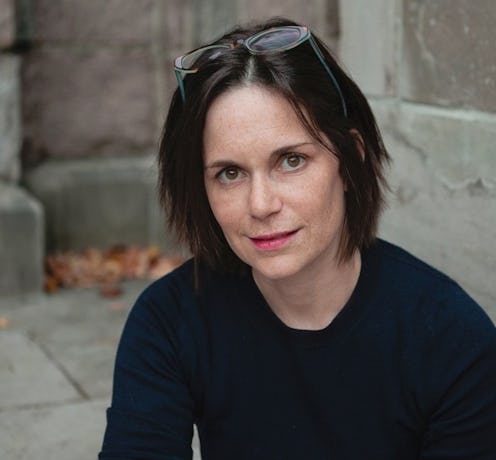Books
The Cost of Capitalism in Lynn's 'The Exiles'

In The Exiles by Allison Lynn, one worn out, professional couple leaves behind the Manhattan life they can no longer afford, packs up their car, straps their 10-month-old son into his car seat, and heads out to a new house and new life in Rhode Island. The only problem? As soon as they arrive in the sleepy New England town to pick up the keys to their new home, the car is stolen, along with a decent amount of their personal belongings and all of their financial papers.
After canceling the credit cards, Nate and Emily both realize that they and their son are now stuck for three days with nothing but an empty house and the cash in their pockets. As they try to cope (and to budget), they are forced to deal with all the things that have remained unspoken between them for so long: their disappointments, their secrets, their fears. This move is supposed to be their fresh start, but with so much emotional baggage between the two of them, is there such a thing?
As the name The Exiles would suggest, the story is in many ways about belonging and about letting go of one homeland to try to embrace another. However, Lynn's novel is also just as much about materialism and consumer culture. It describes itself as a “story about…the mad grab for the American Dream” and the capitalistic nature of that dream come into sharp critique in these pages.
For one thing, the family in question wouldn’t even be considered struggling in most places — Nate works on Wall Street (the book is set several years before the 2008 meltdown) and Emily had a job in advertising before the baby was born — but in Manhattan, their paychecks were eaten up immediately. But rather than making this an outraged statement about the cost of living in New York (The Rent Is Too Damn High!) Lynn makes it about the emotional cost to two people exhausted by the monumental effort of just trying to stay financially stable.
Though hard working and competent, Emily and Nate never quite made it big but are constantly surrounded by friends and colleagues who did, who are able to effortlessly afford designer handbags and prized works of art. Meanwhile, Emily and Nate can barely afford to eat out. By the time the couple hit their late 30s, weighed down by the added financial responsibility of a baby they love but hadn't planned for, they are emotionally drained. Hence to move to Rhode Island for a chance to become big fish in a small pond. Or at least fish with something in their savings account.
Yet here again, it takes losing all the belongings they have on hand for the couple to get down to the things that are really bothering them, to see past the financial troubles to the emotional problems and family demons that truly plague them. In the face of all that, the material woes seem just as insignificant as the potato chip brand that made Emily realize how meaningless her advertising work really was. And while the preponderance of circumstances that leaves the two stranded is a little contrived, it’s also believable enough not to detract from the impact of what it forces them to deal with.
The Exiles is a well-woven look at the human cost of capitalism and a material culture in a mechanized life in which it becomes all too easy to lose sight of what matters in the shadow of what doesn’t.